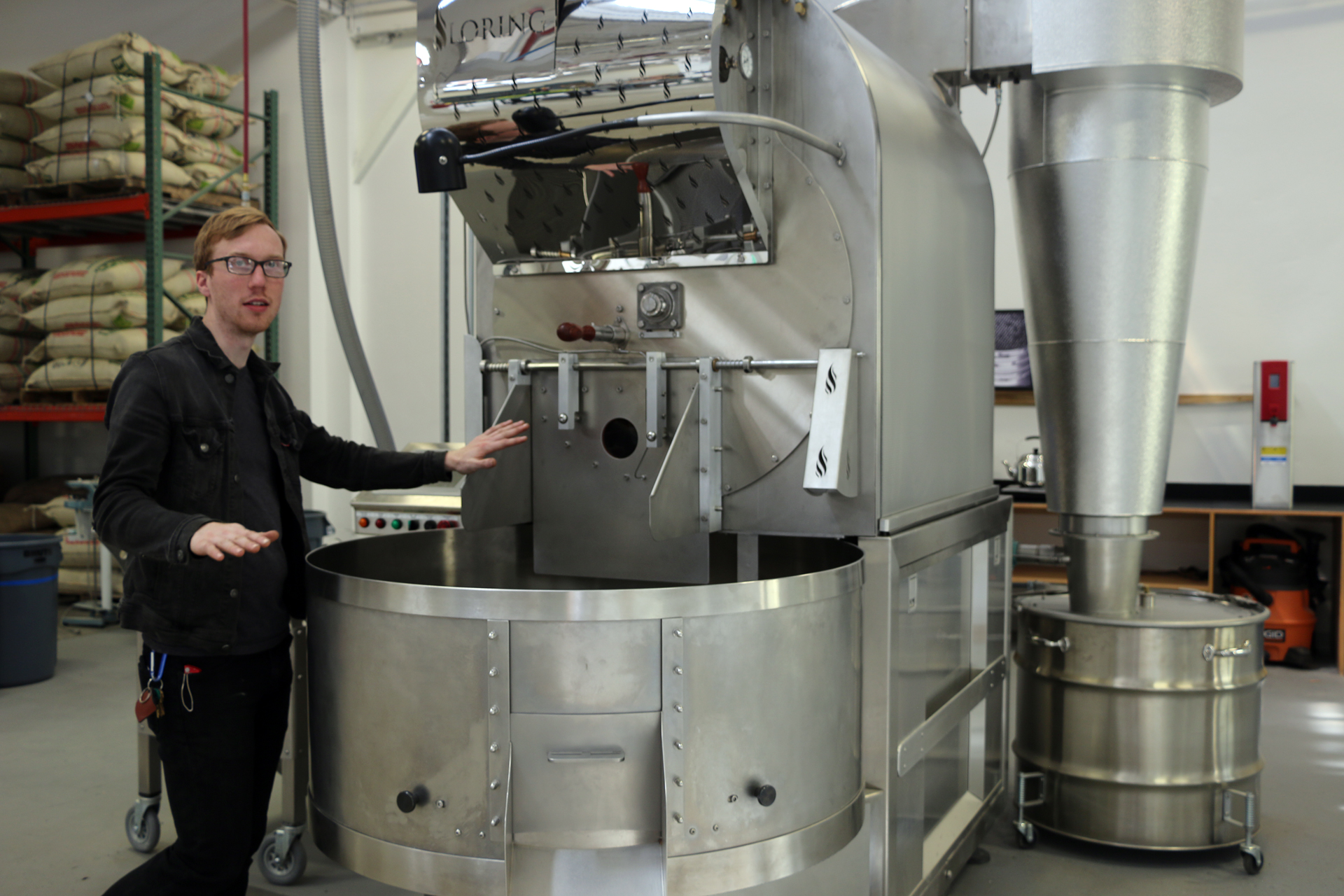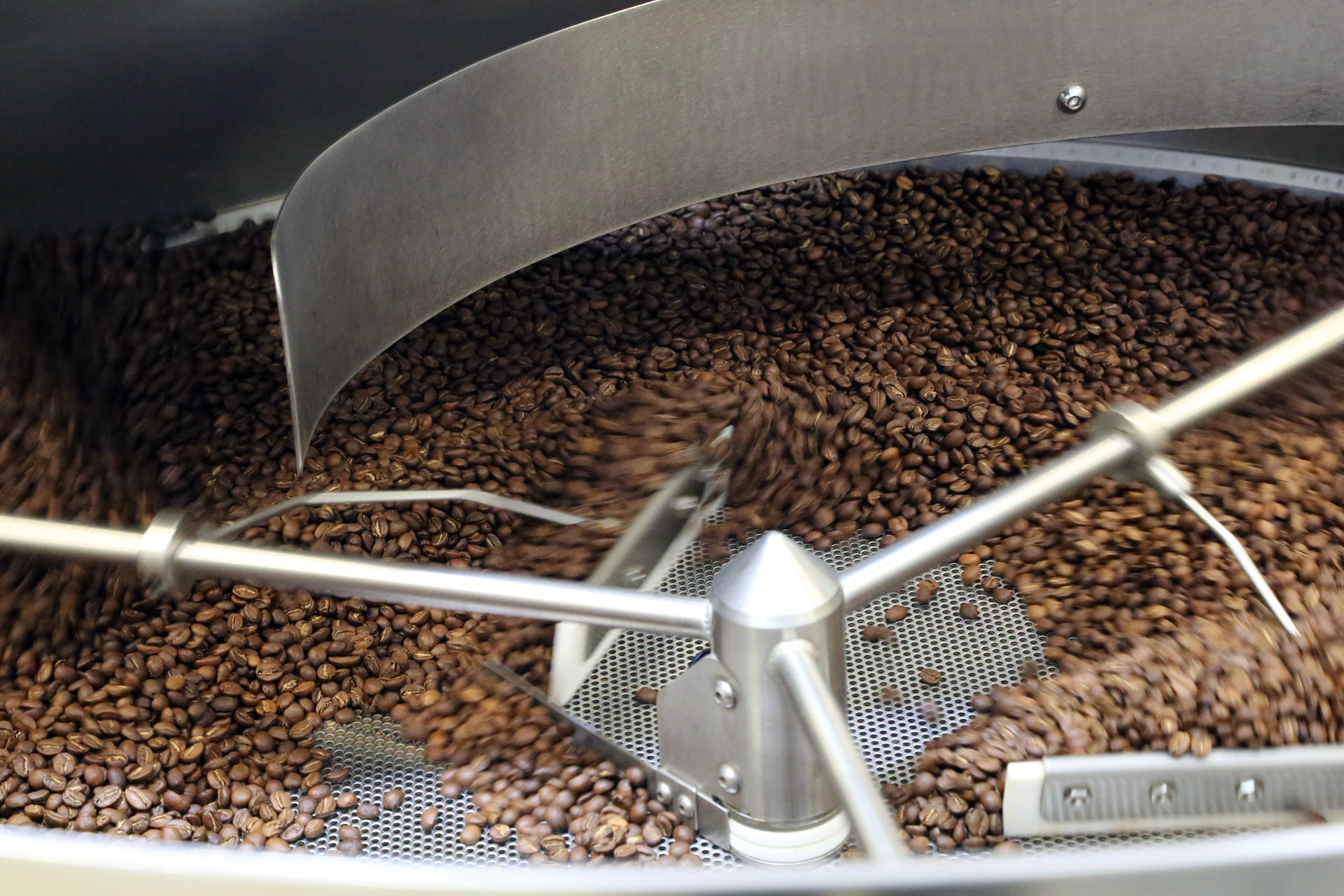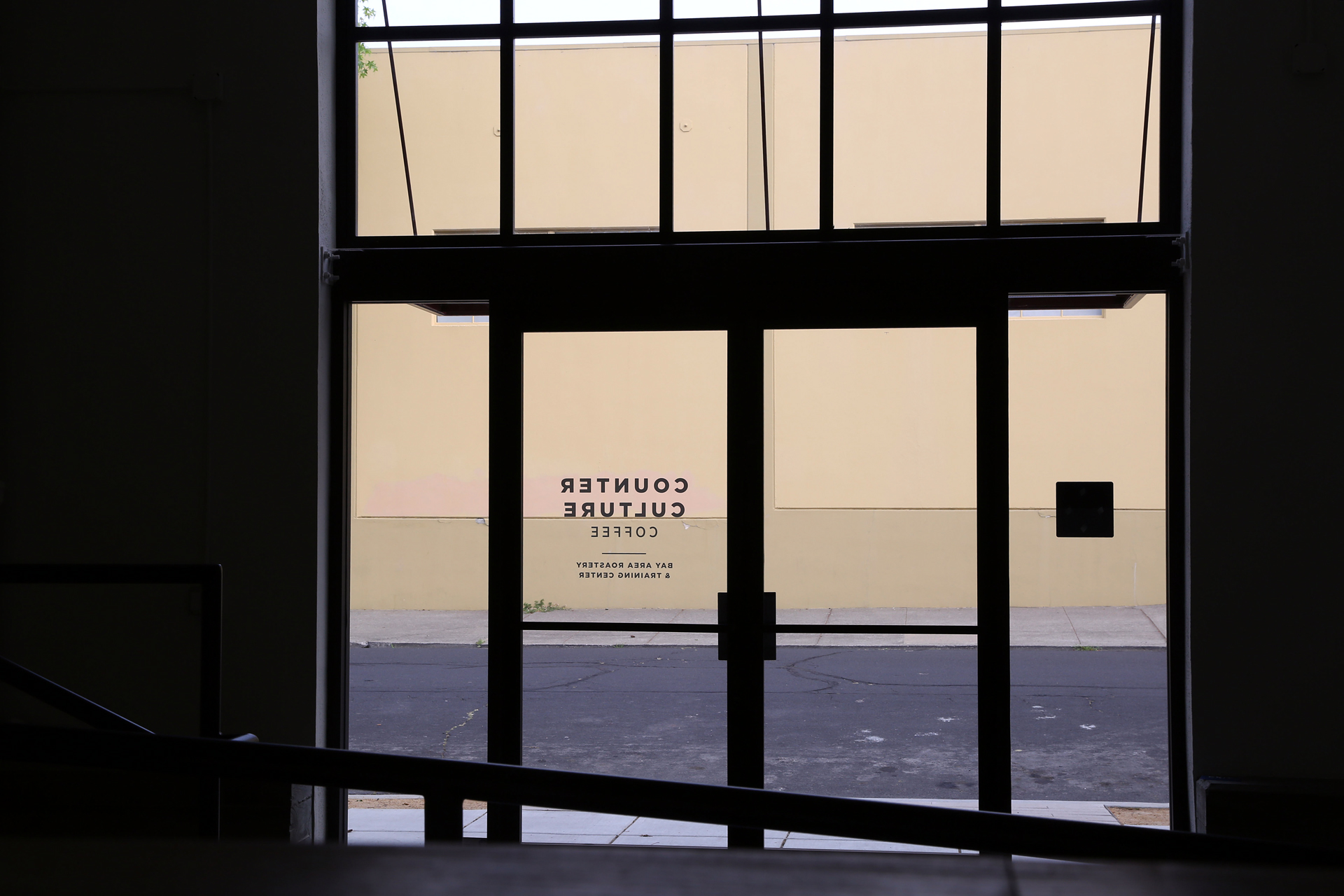In their 20th year of operation, Counter Culture Coffee, a North Carolina-based coffee roaster and educational training company, opens its first west-coast facility in a gorgeously spare 12,000-square-foot Emeryville warehouse. Counter Culture stands poised to take our local obsession with coffee perfection to the next level (who knew there was a next level?), both aesthetically and in terms of sustainability.
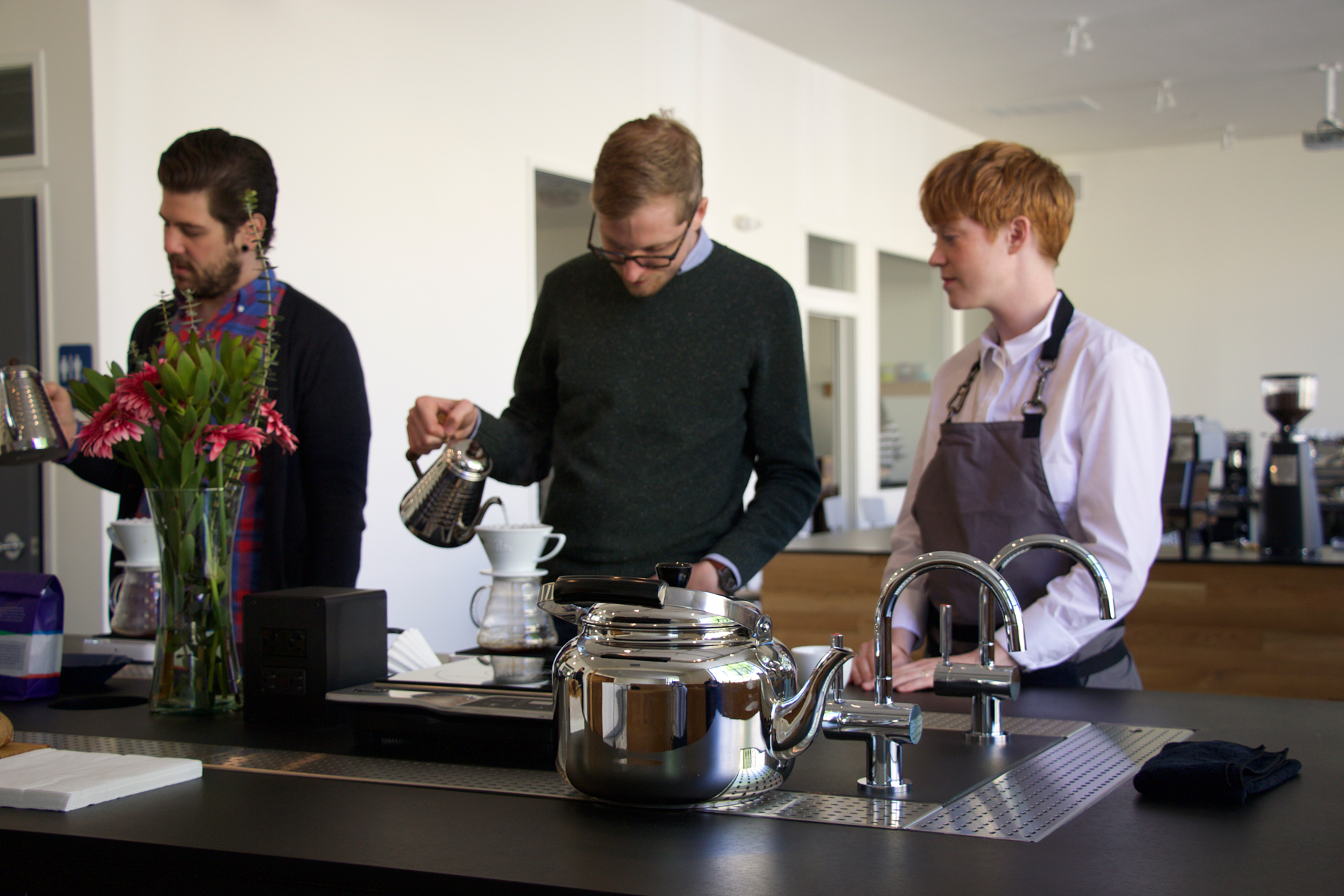
This is not a place designed for the casual café-goer; in fact, it’s not a consumer space at all, save for the Tasting@Ten sessions every Friday morning that are open to all and designed to educate by way of sensory exploration of three distinct, ever-changing seasonal coffees. (Of the 15-30 types of beans on the menu, all but six are seasonal; year-round blends are also made with rotating seasonal selections).
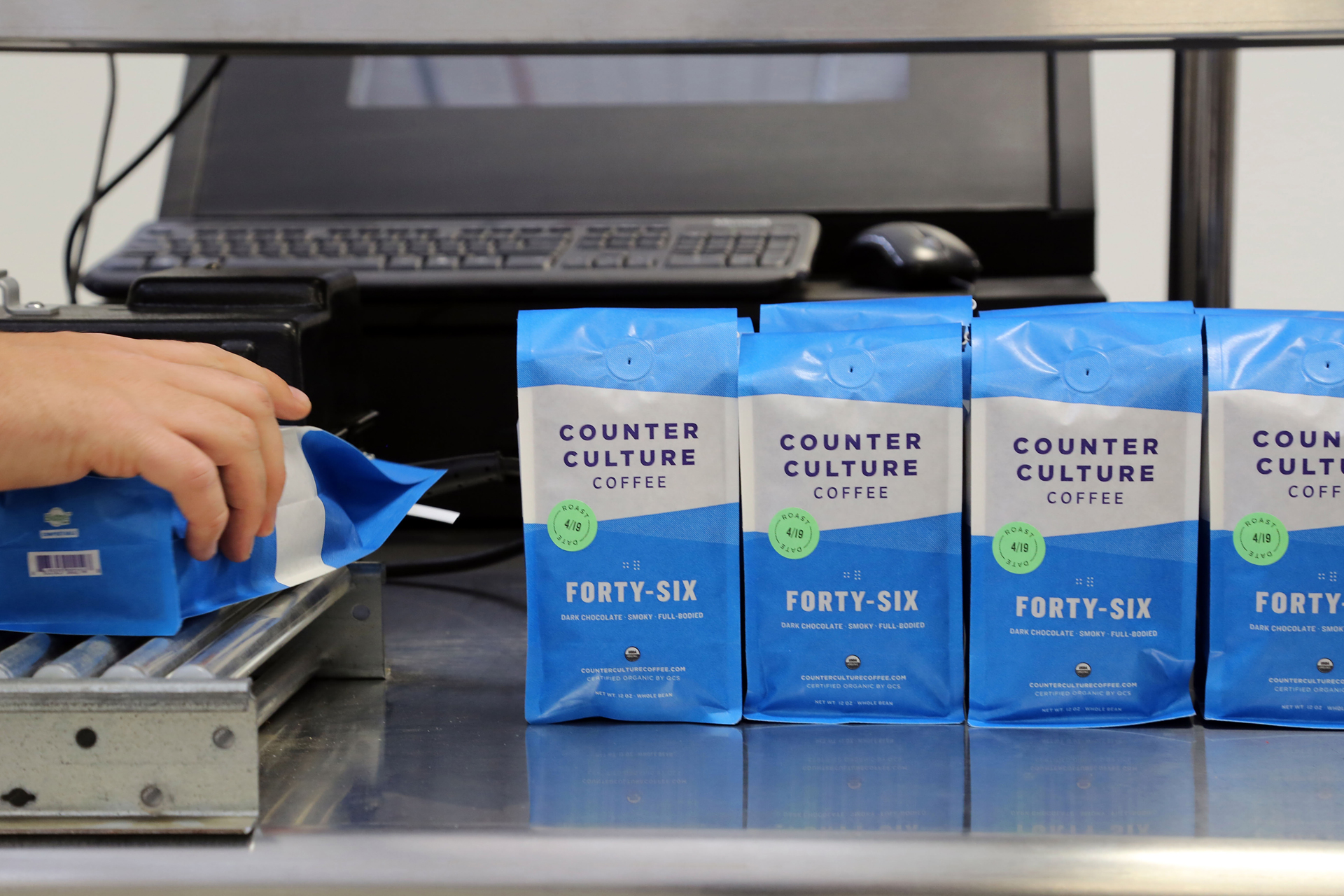
While Counter Culture—perhaps the wittiest pun in recent marketing history—aims for perfection in terms of sourcing, selecting, processing, and brewing, it isn’t concerned, interestingly, with which beans you choose for what brewing method. So, while the menu offers suggestions on what beans are designed for espresso, coffee-lovers are encouraged to experiment with all brewing methods across all their coffees. It’s a kind of freedom within structure that is quite appealing.
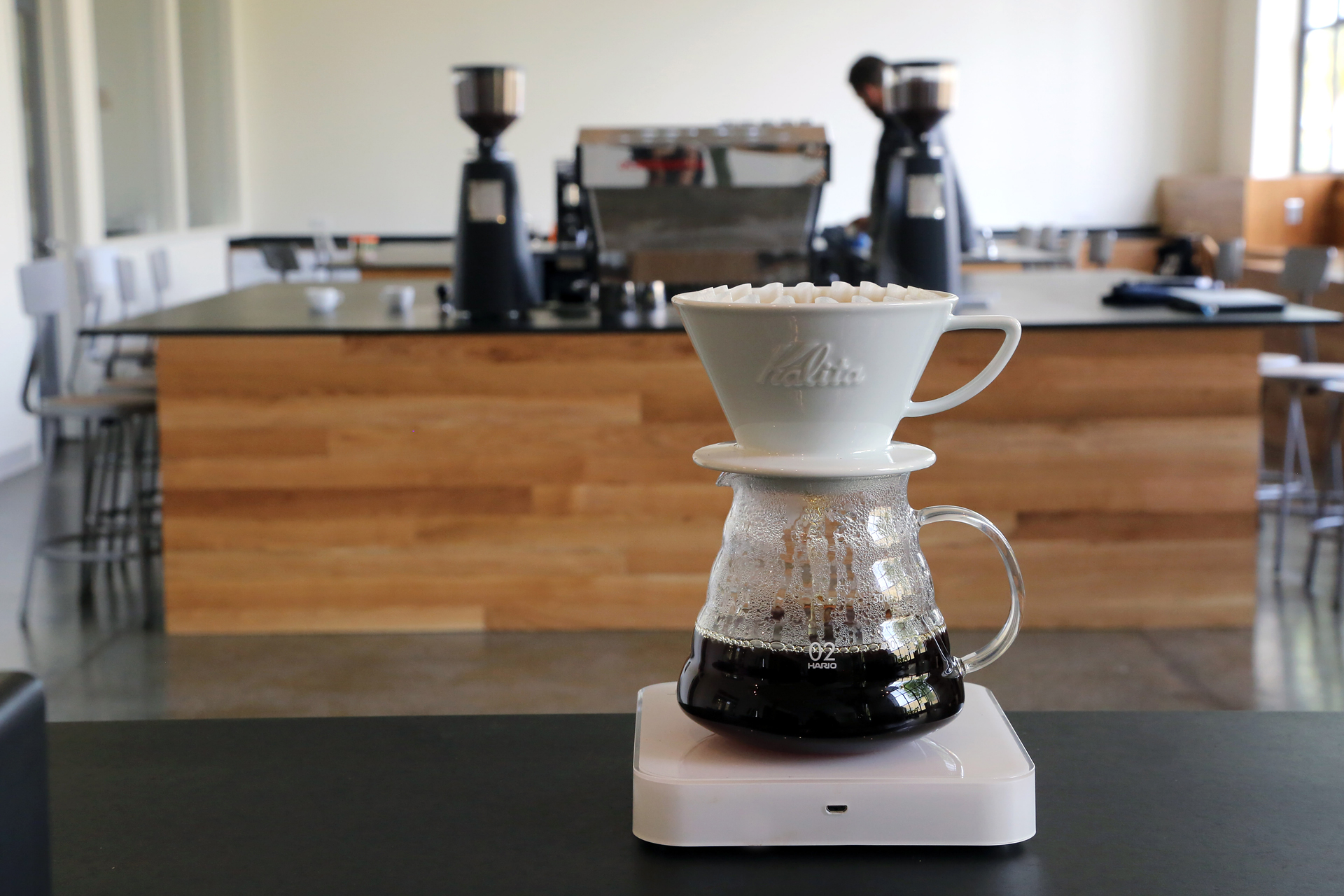
The company’s aesthetic is what I would call modern-geek warehouse, with a precisely equal balance of seriousness (evidenced by their invention of a coffee flavor wheel and their investment in a Loring convection roaster) and levity (which is represented by labels like “Hologram” and “Big Trouble”). It’s a refreshing twist on local artisanal coffee culture, which can be somewhat precious, to find a brand that seems to say, “Hey, we’re serious about making the best coffee you’ll ever taste, but we know that’s a moving target, and we’re learning new stuff every day.”
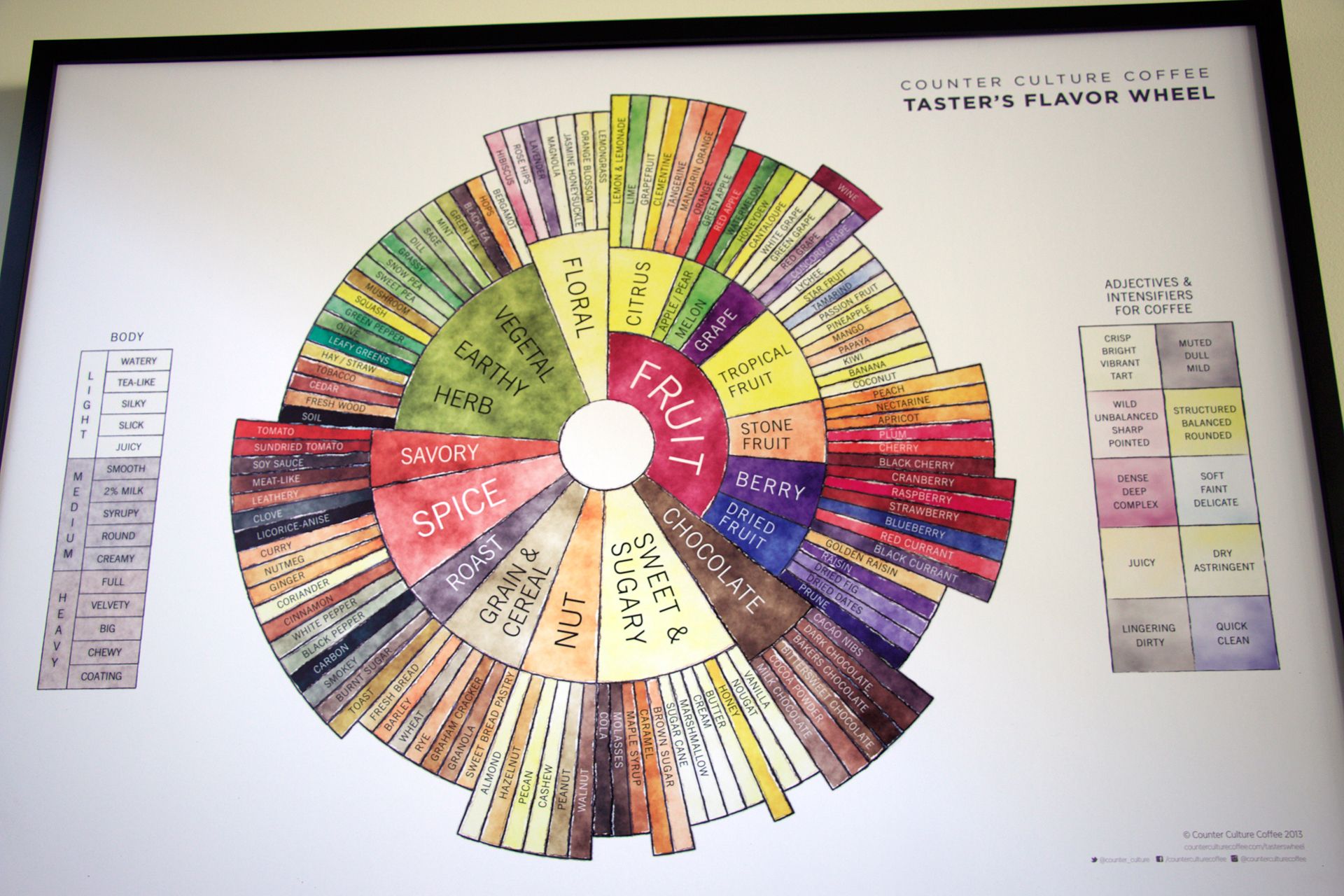
I hung out in their cupping laboratory and tasted through their current coffees. My two favorites were Duarte Alto, a single-origin bean from Nariño, Colombia that has a light chocolate nose and citrus and caramel on the palate, and Buziraguhindwa (which is easier to pronounce once you learn it’s phonetic), a naturally sun-dried bean from a tiny village in Kayanza, Burundi with bright, tart fruit flavors.
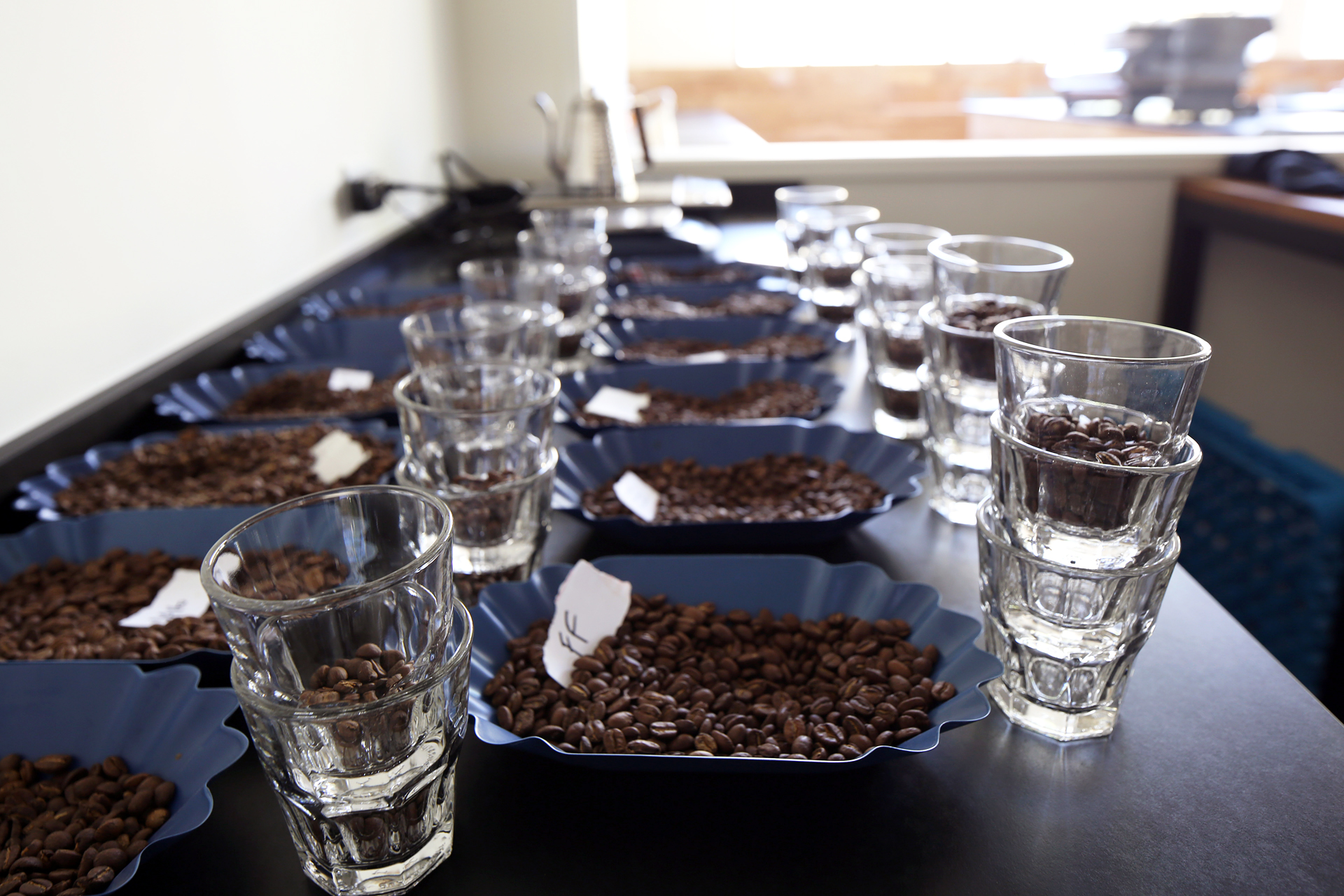
Counter Culture’s interest in sustainability starts with their relationships with growers. In some cases, they guarantee farmers premium prices based on quality, not quantity. In others, they agree to buy all the coffee produced during a given season in exchange for the producers’ willingness to experiment with new methods; the Burundi bean mentioned above was the first-ever processed this way in the region, and it has helped local farmers throughout the area create a good product using very little of their limited water resources. (Because the climate is dry, excess fermentation during air-drying is not a concern.)
